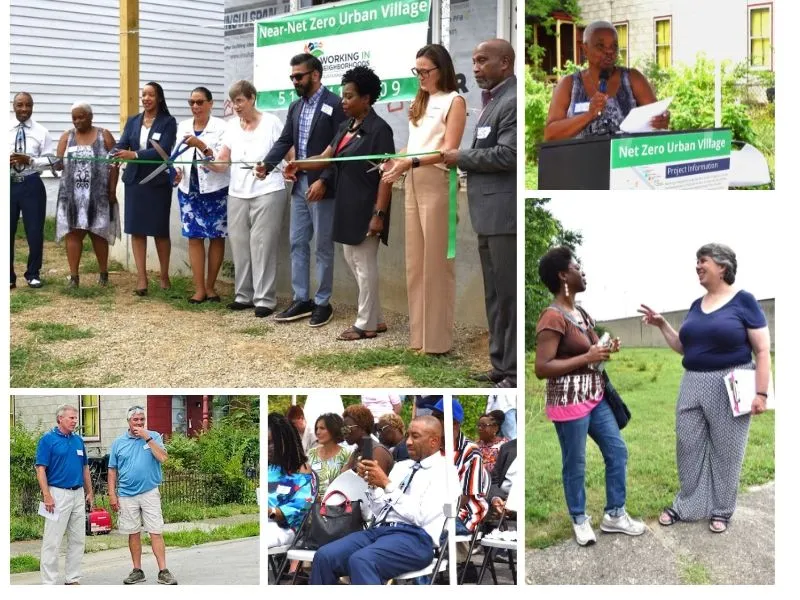
The project aims to construct 25 near-net-zero homes that will be sold to first-time low-to-moderate income families. These homes, each 1,200 square feet in size, include 3 bedrooms, 2 baths, a living room, a kitchen area, and an unfinished basement. The plan also calls for retrofitting 25 existing homes. At the gathering, WIN’s Executive Director S. Barbara Busch reported that fifteen of the twenty-five retrofits had already been completed. “The goal of the retrofits is to help our elderly neighbors age in place with increased comfort and reduced utility bills,” said Busch.
By using green technology in the housing design, WIN is addressing issues like the urban heat island effect, health concerns linked to older housing stock, and energy affordability that negatively impact homeowners in this tight-knit community northwest of Downtown.
Designed to be LEED Gold certified, the homes are being built to reduce water and energy consumption, improve indoor air quality, and lower carbon dioxide emissions. Construction features include the use of structural insulated panels (SIPs), lifetime dimensional shingles, Energy Star windows and doors, and roof-mounted active solar panels.
“This project really is a significant step forward for our ongoing efforts to provide quality, affordable housing for our communities, while also striving to achieve a goal of near-net-zero energy usage … It is a testament to what we can achieve when we work together with a shared vision of a better future,” said Markiea L. Carter, director of the Department of Community and Economic Development for the City of Cincinnati.
The city along with U.S. Bank, PNC Bank, and The Port, are WIN’s project partners. “For our neighbors who face financial challenges, these homes can provide stability and opportunity. They offer relief from ever rising energy costs and pave the way to long-term financial security,” stated The Port’s Liz Eddy, director of Residential Development.
The first phase of the project is slated for completion in 2026.
